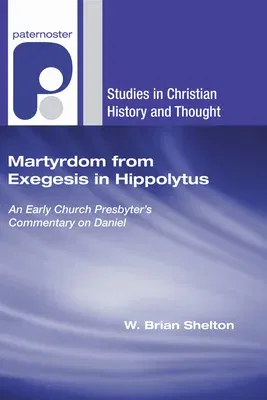In the third century CE, Emperor Septimius Severus unleashed a shocking
and severe persecution against the Christian church. Witnessing the fear
and confusion in his congregations, the presbyter Hippolytus crafted his
Commentary on Daniel to encourage Christians confronted with the reality
of martyrdom and persecution. In a work which comes to us as the
earliest orthodox Christian commentary on scripture, Hippolytus
interprets the text through allegory, typology, theodicy, paraenesis,
and reflection to create a motif of martyrdom. By doing so, Hippolytus
guides Christians iin their communities as they stand heroically before
the tribunal of Caesar, like the Danielic characters stood before
authorities in Babylon. His purpose in the commentary is clearly
pastoral, arising from his role as presbyter: to exhort his Christian
congregations to prepare to be martyred for Christ amidst Roman
persecution. 'An important book that reveals some of the earliest layers
of ancient Christian commentary on scripture, featuring especially the
relation of the Daniel text to the early history of martyrdom during the
persecution under Septimius Severus.' -- Thomas C. Oden is former Henry
Anson Buttz Professor of Theology at The Theological Schook, Drew
University. 'Shelton's examination of the enigmatic Hippolytus'
commentary on Daniel captures, indeed advocates, its pastoral spirit
encouraging perseverance in persecution. It reveals a window on
Christian exegesis at the turn of the third century by an important and
obscure figure linking East and West.' -- Robert Lee Williams is
Professor of New Testament, Southwestern Baptist Theological Seminary.
W. Brian Shelton is Associate Professor of Sytematic and Historical
Theology, Toccoa Falls College, Georgia. His publication work ranges
from the The Journal of Early Christian Studies to the New England
Journal of Medicine.


